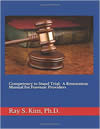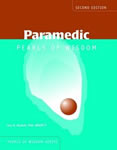All Articles
Alcohol, Tobacco & Other Drugs
Human Factors
Appraisal & Valuation
Industrial Hygiene and Safety
Aquatics Safety
Injury
Arms - Guns - Weapons
Intellectual Property
Boating
Investigation & Surveillance
Business Consulting
Land Mapping - Surveying - Zoning
Business Management
Law Enforcement
Chemical Industry
Life Expectancy - Life Care Planning
Construction
Marketing
Cosmetology: Hair / Makeup
Medical Malpractice
Crime Scene Investigation
Medicine
Criminology
Metallurgy
Damages
Neuropsychology
Digital / Crypto Currency
Nonprofit Organizations
Discovery & Electronic Discovery
Nursing
Economics
Patents
Education & Schools
Plants & Trees
Employment
Police Practices & Procedures
Enterprise Resource Planning (ERP)
Psychiatry
Environment
Psychology
Fires & Explosions
Securities
Foot / Ankle Surgery
Security
Hazardous Materials
Slip, Trip & Fall
Healthcare Facilities - Hospitals
Taxation
Hotels & Hospitality
Terrorism - Homeland Security
More...

LAW-ENFORCEMENT-PAGE ARTICLES MAIN PAGE
. Contact Us if you are interested in having your work published on our website and linked to your Profile(s).
All Articles
Accounting
Healthcare Facilities - Hospitals
Addiction Issues & Substance Abuse
Human Resources
Alcohol, Tobacco & Other Drugs
Industrial Hygiene and Safety
Alternative Dispute Resolution (ADR)
Insurance
Artificial Intelligence (AI) / Machine Learning (ML)
Land Mapping - Surveying - Zoning
Blockchain Information
Land Use
Boating
Legal Issues
Branding - Brand Management
Logistics - Reverse Logistics
Business Consulting
Medical - Medicine
Child Welfare
Medical Records Review
Construction
Nonprofit Organizations
Dental - Dentistry
OSHA
Discovery & Electronic Discovery
Plastic / Reconstructive / Cosmetic Surgery
Domestic Violence
Professional Malpractice
Electrical - Electrocution
Professional Skills
Employment
Recreation & Sports
Energy - Utilities
Risk Management
Engineering
Speech-Language Pathology
Enterprise Resource Planning (ERP)
Supply Chain Management
Expert Witnessing
Taxation
Eyewitness Testimony
Telecommunication
Feng Shui
Terrorism - Homeland Security
Finance
Transportation
Foot / Ankle Surgery
Underwriting
Gems & Jewelry
Workplace Violence
More...
Featured Articles
There are no active articles here at this time. Please use the search bar, try another category, or contact us if you would like to contribute an article.
This Article is unavailable. Contact Us
Search articles by title, description, author etc.
Sort Featured Articles
Featured resources
Competency to Stand Trial: A...
by Ray S. Kim, PhD
Paramedic: Pearls of Wisdom
by Guy H. Haskell, PhD, JD, NREMT-P
Students with Disabilities and Their...
by Ray Turner, EdD
Follow us










